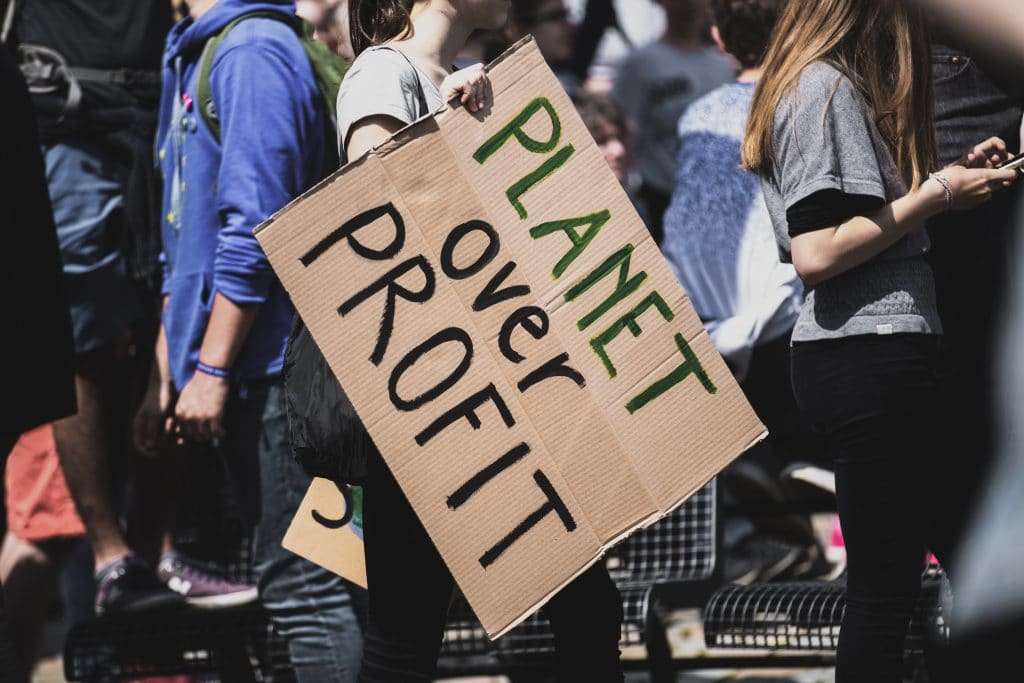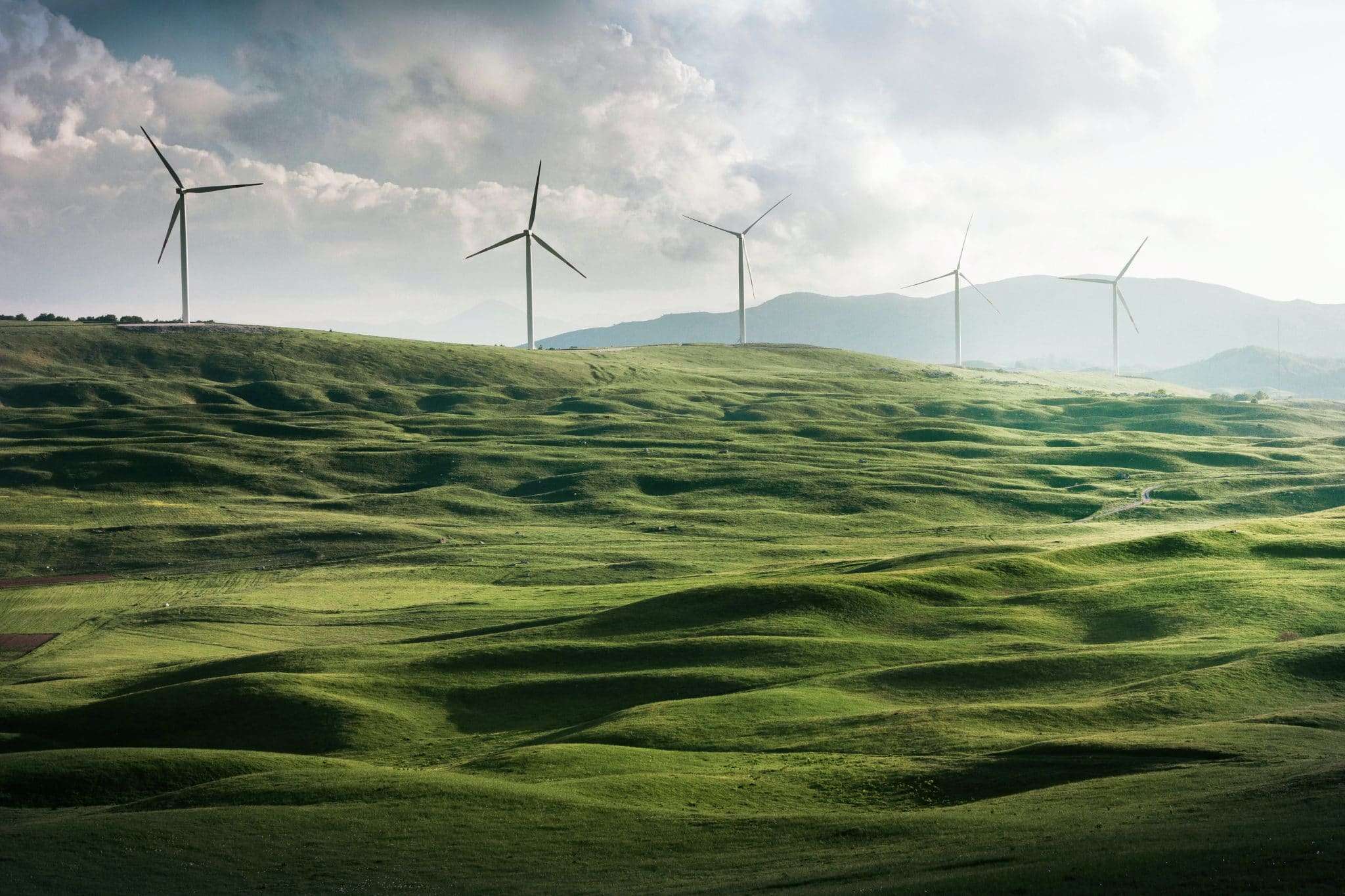A new report finds corporate greenwashing may be a thing of the past. According to the second EcoVadis Network Impact Report, measurable sustainability efforts are on the uptick across industries.
The new EcoVadis report found efforts like reusing and recycling measures had increased 54 percent in 2021, and renewable energy use and production increased 30 percent. Companies also increased efforts across diversity training (47 percent) and adding equality programs (72 percent).
The report’s findings build on trends the business sustainability ratings company says have been on the rise since at least 2016. According to EcoVadis, environmental improvements across hundreds of industries have tripled in recent years.
“Businesses and governments are feeling immense pressure to break down broad commitments into tactical targets and action plans—particularly in the value chain—and start executing and reporting on them,” Pierre-François Thaler, co-founder and co-CEO of EcoVadis, said in a statement.
Improvement Magnitude
This year’s report includes a new metric, Improvement Magnitude, which measures the total scope of score improvements across its network.
“Improvement Magnitude is the number of companies who improve their score in a given month multiplied by the average increase in score in the same period. Monthly Impact Magnitude increased from 2,657 in December of 2016 to 6,381 in December of 2021,” the company explained.

By sharing performances with stakeholders or monitoring the performance of upstream value chains, EcoVadis says it is the only universal sustainability ratings provider.
“Our customers across the network have done tremendous work to achieve these results,” Thaler said. “We are eager to deliver this year some key platform and reporting enhancements that will empower them to analyze and monitor impact metrics, such as those detailed in this report, at the company and industry level.”
The EcoVadis Index found the acceleration “in positive impact is the result of not only quantitative growth within the EcoVadis network, but also new dimensions that increase the breadth and depth of collaboration and improvement in sustainable business practices.”
Much of this can be due to pressures corporate leaders have felt in recent years to substantiate sustainability commitments with practical action, the report notes.
Measurable sustainability targets
The findings pinpoint progress as a result of regulators, investors, and consumers expecting companies to quantify and disclose efforts toward published targets, “and to document the tangible benefits such measures are generating for the planet and society,” reads the report. “When it comes to acting on climate change and social inequality, therefore, the time for ‘ambition’ has expired. In 2022, ‘impact’ must be the watchword for effective corporate sustainability governance.”

EcoVadis works to improve sustainability metrics for companies across all industries, regardless of size or location, it says. Using a holistic ratings methodology, companies’ sustainability performances are rated on a scale from zero to 100. The ratings cover 21 sustainability criteria across environment, labor and human rights, ethics, and sustainable procurement.
To measure carbon emissions, a key consideration for all companies, EcoVadis says its Carbon Action Module drives measurement and the reduction of supply chain emissions. That module went into effect last July; to date the company has more than 3,500 scorecards completed.
It’s also working with private equity companies to help enhance ESG value creation in funding, investments, portfolio performance, and exit valuations.
Consumers are savvy about greenwashing
The report’s findings were underscored by a recent panel discussion chaired by CNBC’s Steve Sedgwick where corporate greenwashing was debunked.
“One of the most exciting and most, perhaps, unexpected developments that we’ve seen in the last couple of years or so is that climate change is actually a topic that investors are looking carefully at right now,” Judy Kuszewski, chief executive of sustainability consultancy Sancroft International, said during the event.
She says investors are “really asking questions about the company’s strategy and their future fitness to … deal with the inevitable changes that are ahead of us.”
Also on the panel, Jos Delbeke, former director-general for climate action at the European Commission, said the pressure that originally came towards the public authorities has now, “since [the Paris Agreeement], gradually widened … to involve the private sector and in particular … dealing with risk and looking for opportunities.”

According to Delbeke, the public is now “very wary” about greenwashing, the marketing veneer that’s aimed to make businesses or products appear more sustainable than they really are.
But Delbeke says that’s changing. Companies are walking the talk and consumers are doing their research. “We have this trust that is now being expressed towards the public and the private sector,” he said.
“I think that is a lot of what is at stake here: that companies going for net-zero can … demonstrate, in a very credible manner, that they are going to net-zero,” he said.
Kuszewski says standards and measurements already exist to foster this shift.
“There isn’t really a need for new standards,” Kuszewski said. “There’s a need for consistent application of the standards that we already have, whether those are around sustainability reporting and indicators — far and away the most used one is the Global Reporting Initiative, which is used by 10,000 companies annually.”
“There is good agreement across the landscape about what the … frameworks and the measurement protocols should be,” Kuszewski said. “It’s about application.”


